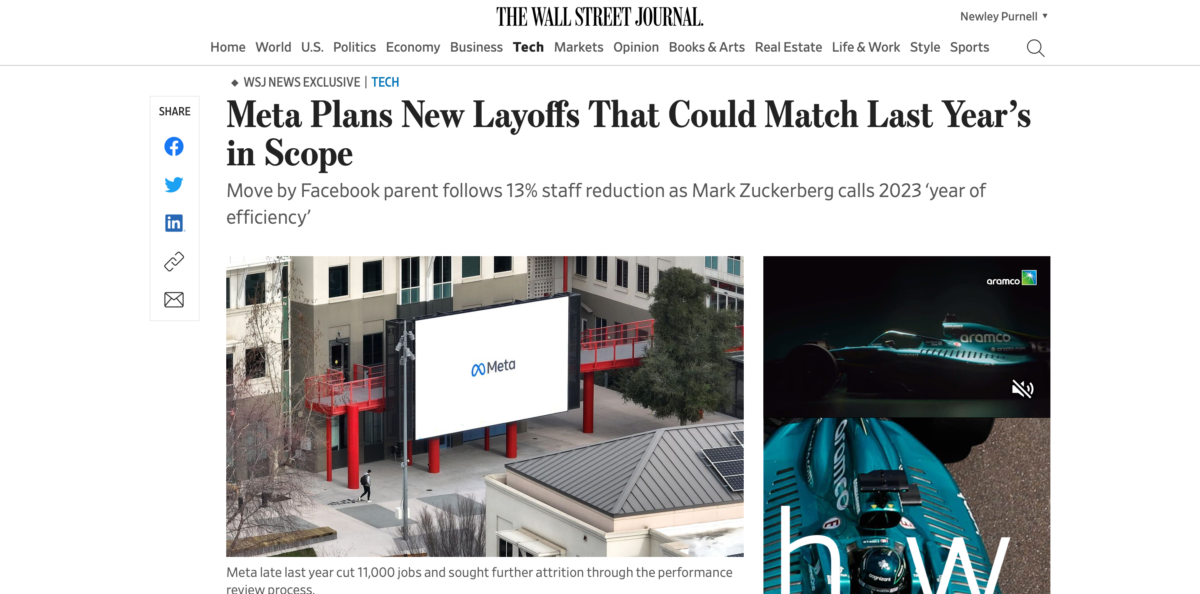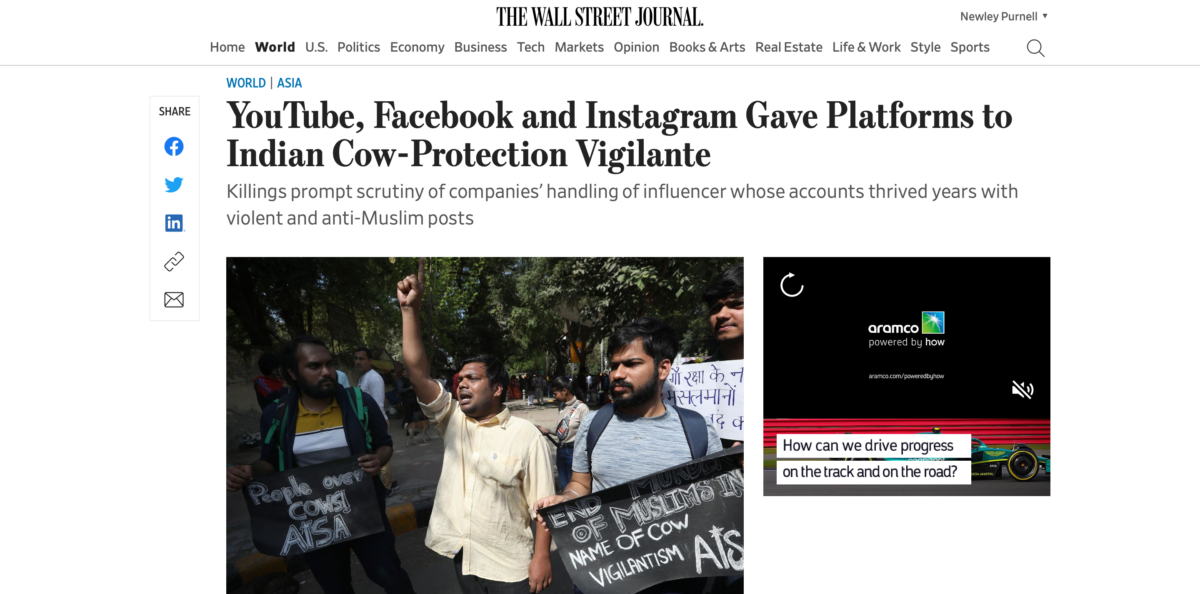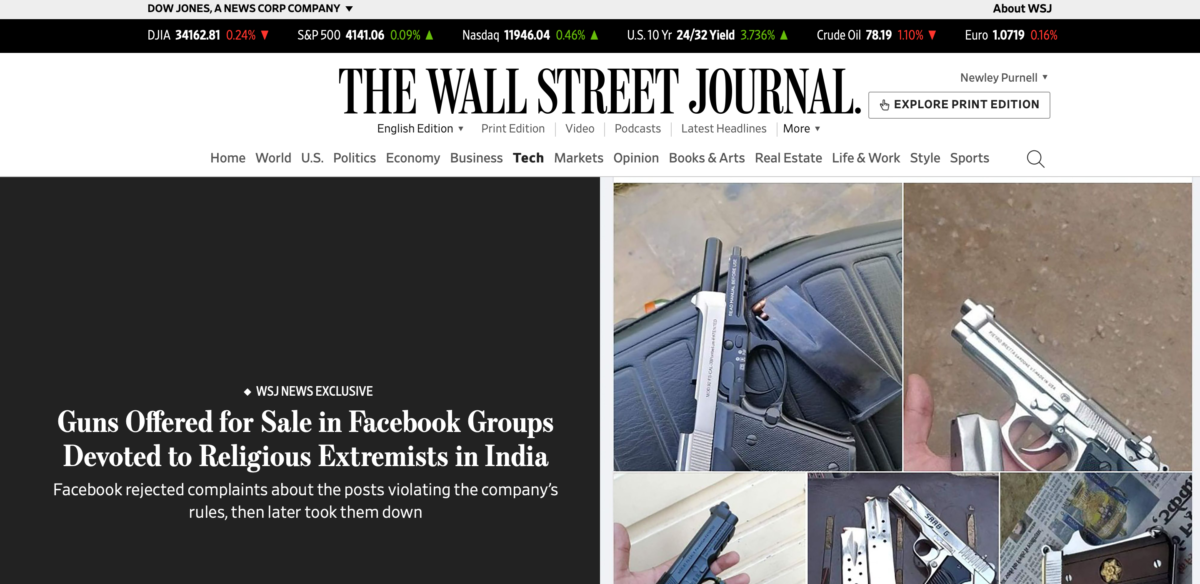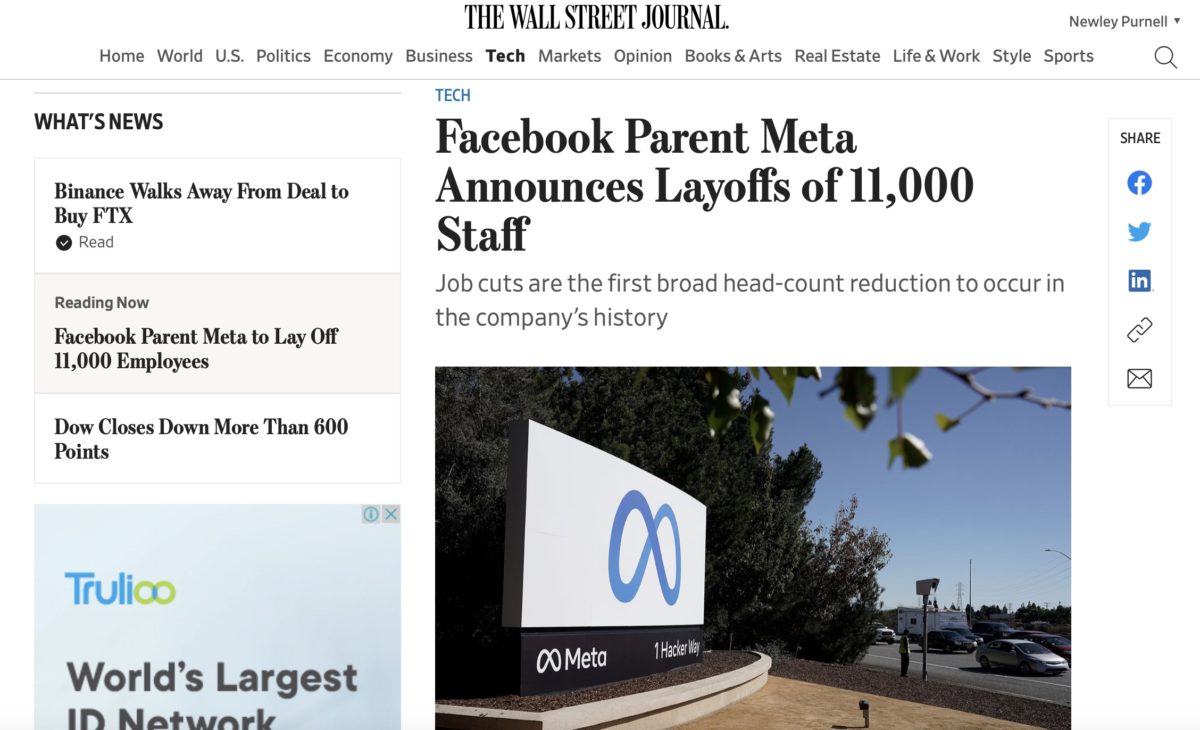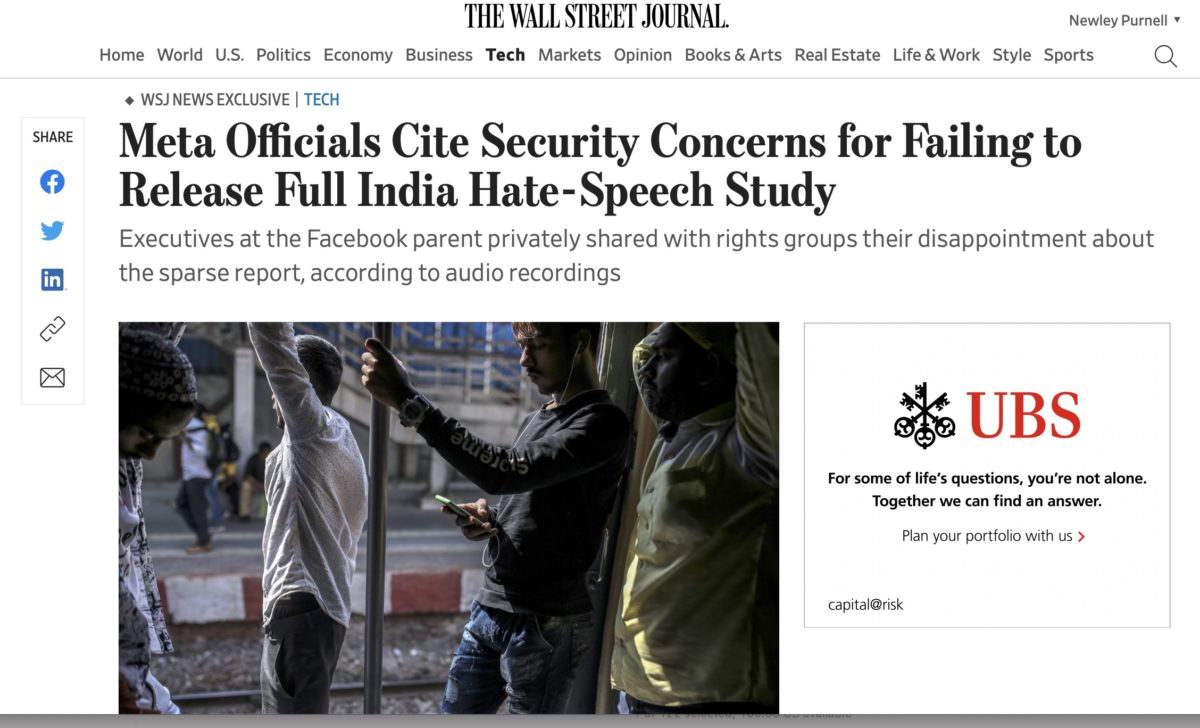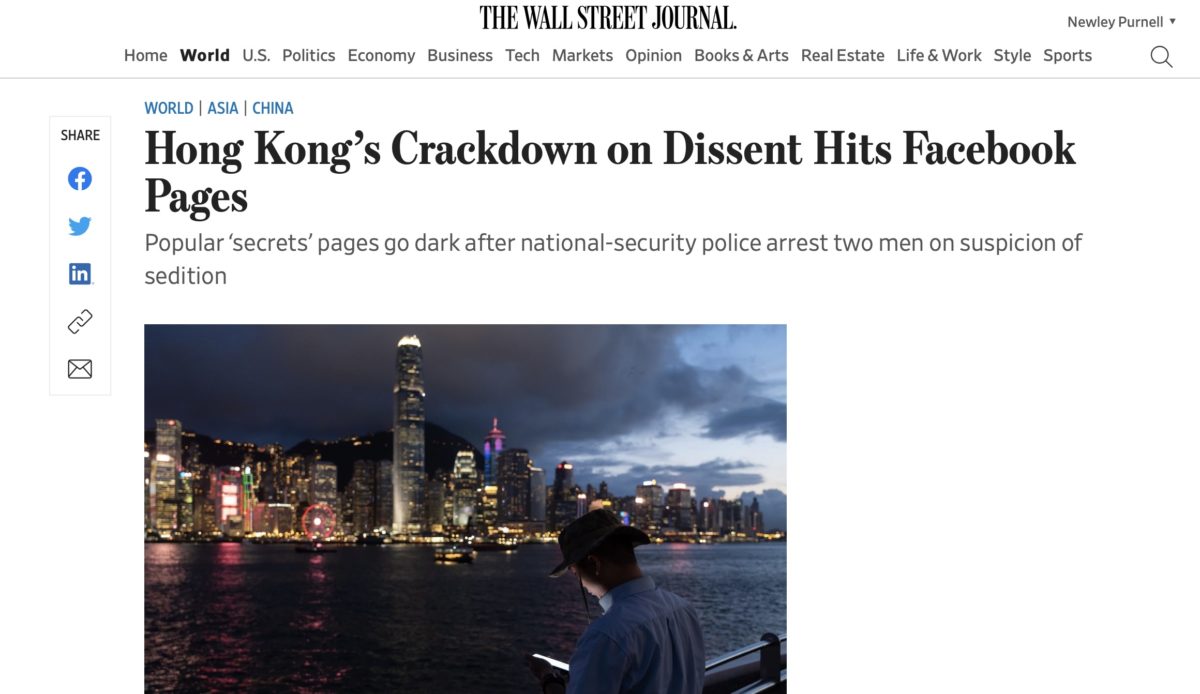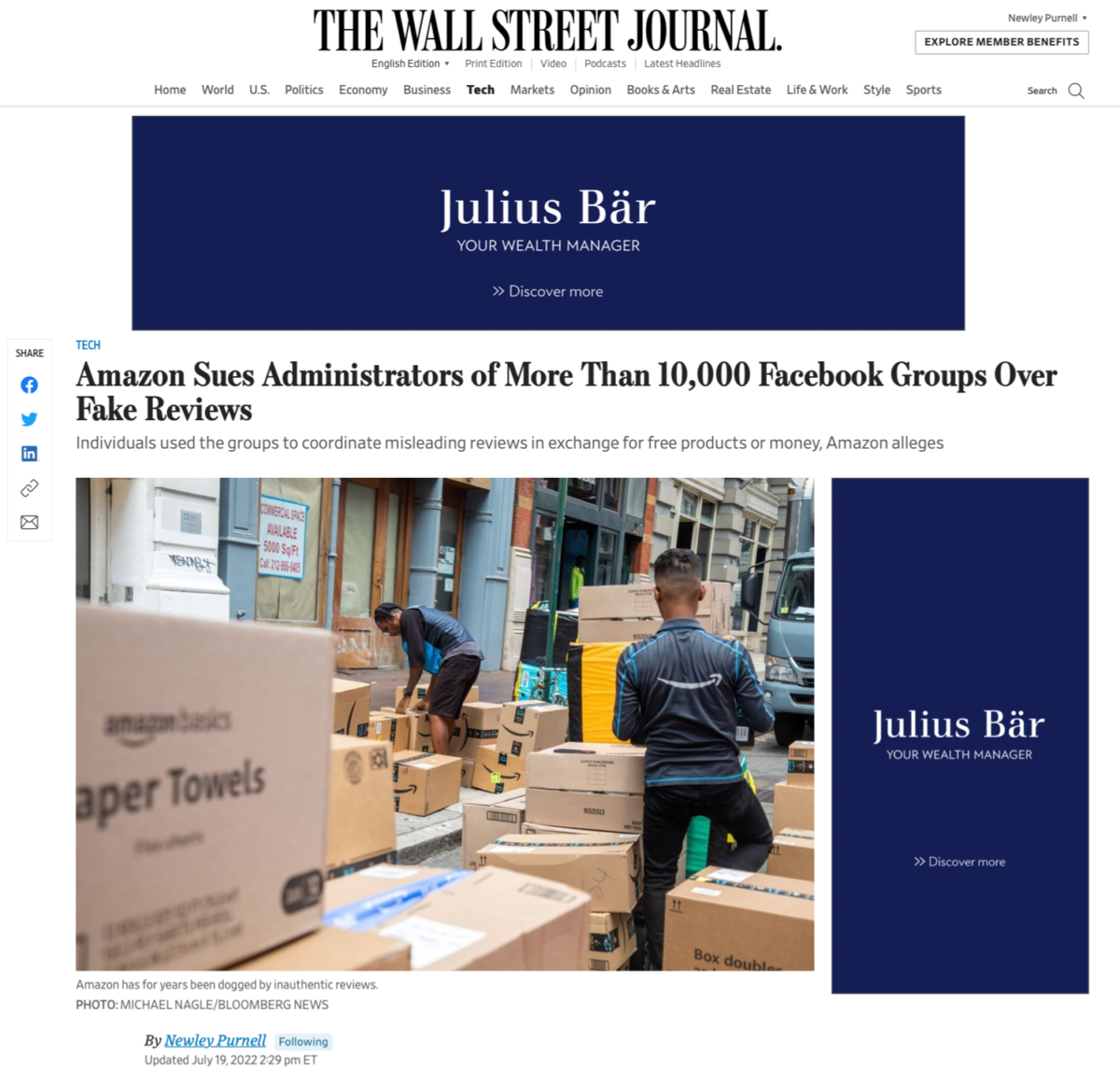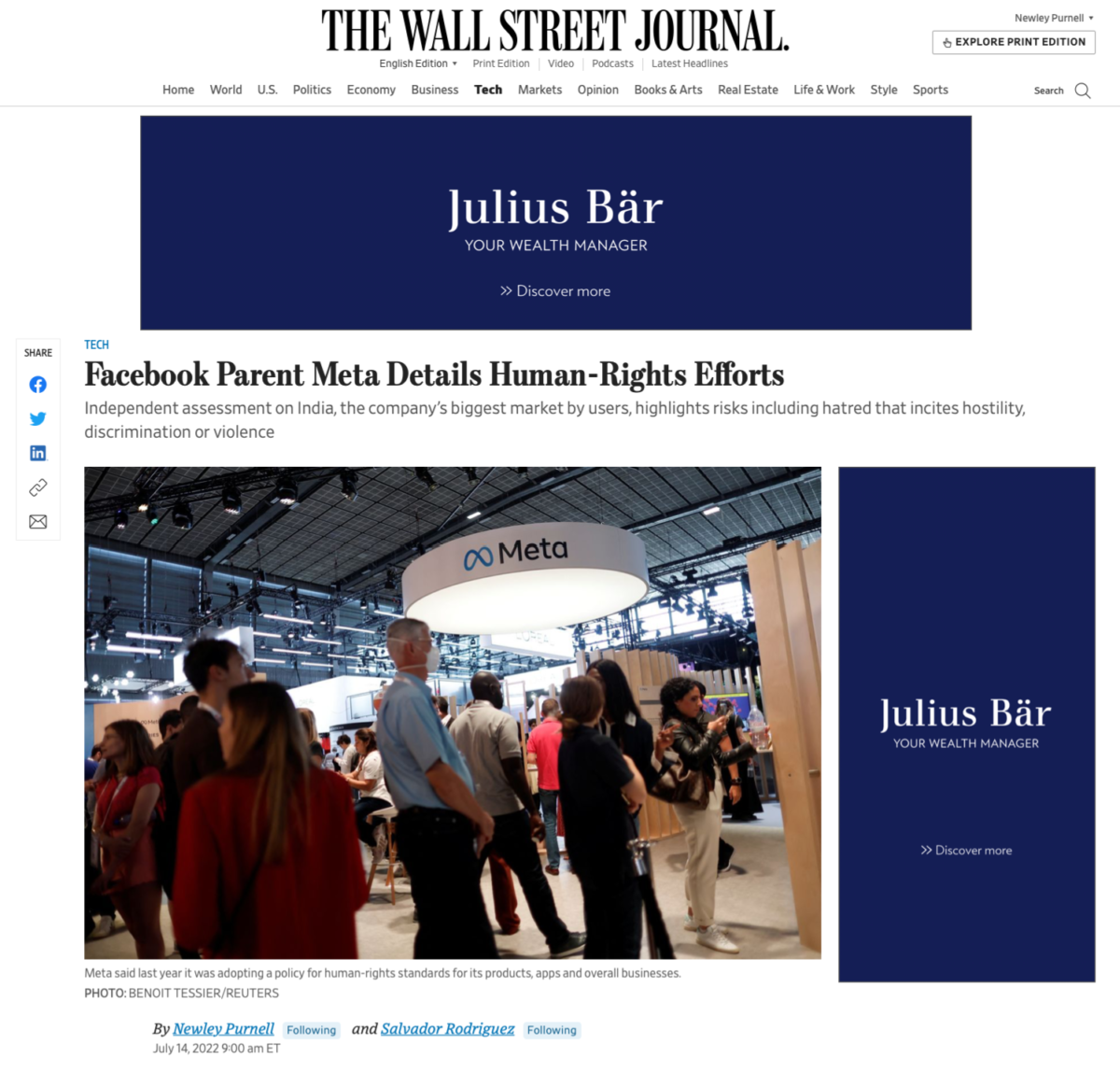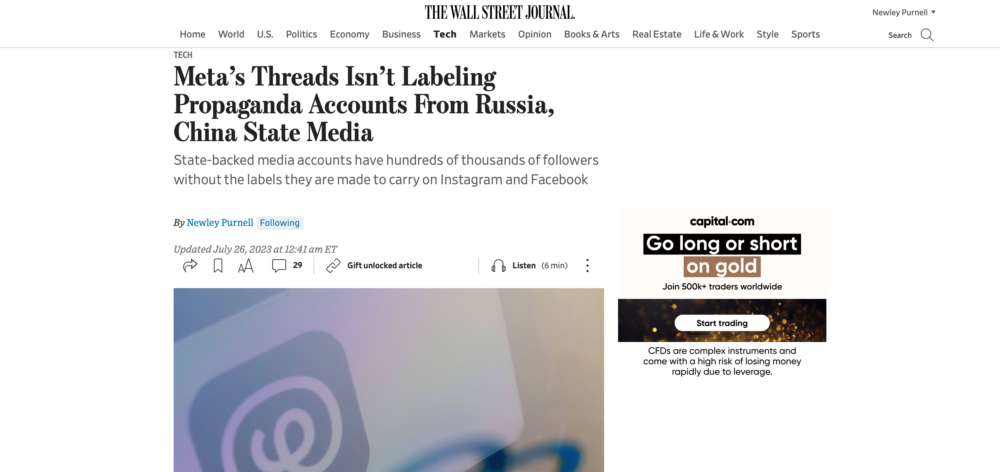
That’s the headline on a story I had out Wednesday. It began:
State-backed news outlets from Russia and other authoritarian governments have rushed to join Meta Platforms’ new Threads microblogging service, posting propaganda such as a fake video purporting to show President Biden in a store perusing books on dementia.
Unlike on Facebook and Instagram, their verified accounts on Threads aren’t labeled as state-controlled media, raising questions over how the Facebook parent intends to police content on its Twitter rival that launched this month. Twitter, now being rebranded as X, in 2020 began applying labels to state-run news organizations; under Elon Musk, it removed them in April.
Meta also in 2020 began applying such labels to state-run media accounts on Facebook and Instagram. That came after independent studies found Russian influence campaigns ahead of the 2016 election used such services to suppress voter turnout and boost Donald Trump’s presidential bid.
Meta launched Threads before the service was fully built out to capitalize on Twitter’s struggles under Musk, The Wall Street Journal has reported. That means Threads lacks basic moderation features including the labels.
Russia’s RT and Sputnik News, China’s CGTN and Xinhua News, and Fars News—run by Iran’s Islamic Revolutionary Guard—have attracted more than 270,000 followers on Threads since the service launched this month, according to a tally by the Journal. That is far fewer than the hundreds of thousands or even millions of followers they have built over the years on Twitter.
Sputnik News, a Russian outlet that analysts describe as publishing propaganda, posted last week a manipulated video purporting to show Biden perusing books next to a sign saying “Brain exercises for dementia.”
Fact-checking groups debunked the video in 2020, saying that it took real footage of Biden looking at books in a store and superimposed a sign nearby that said “Brain exercises for dementia.” Sputnik News didn’t post the video to its Instagram account, where it is labeled as a state-affiliated organization.
After the Journal asked a Meta spokeswoman about the video of Biden on Threads, the post began showing a label describing it as “False information,” saying “independent fact-checkers say this information has no basis in fact.”
